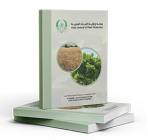M.M.A. Hammam, M.M.M. Mohamed, L.W. Duncan, F. Elborai and M.M.M. Abd-Elgawad (EGYPT & USA)
Pages 482-488
eSSN 2412-5407
pISSN 0255-982X
مجلة وقاية النبات العربية
Arab Journal of Plant Protection
A Regional Scientific Journal Published Four Times a Year by the Arab Society for Plant Protection

eSSN 2412-5407
pISSN 0255-982X

Multi-Season Yield Enhancement Following Citrus Nematode Management in an Egyptian Citrus Orchard
Abstract
Hammam, M.M.A., M.M.M. Mohamed, L.W. Duncan, F. Elborai and M.M.M. Abd-Elgawad. 2024. Multi-Season Yield Enhancement Following Citrus Nematode Management in an Egyptian Citrus Orchard. Arab Journal of Plant Protection, 42(4): 482-488. https://doi.org/10.22268/AJPP-001272
Chemical and biological nematicides were evaluated for the management of the citrus nematode Tylenchulus semipenetrans in an Egyptian lemon orchard. The experiment included 7 treatments as follows: native Heterorhabditis indica applied to the soil surface in aqueous suspension, H. indica infected cadavers applied beneath the soil surface, Abamectin®, Micronema® a product containing Serratia sp., Pseudomonas sp., Azotobacter sp., Bacillus circulans and Bacillus thuringiensis, chemical treatments cadusafos and two rates of the chemical oxamyl. The experiment followed a randomized complete block design with 10 blocks, and treatments were applied between October 2018 and February 2019. All treatments reduced (P ≤ 0.05) population densities of female citrus nematodes in roots between 32 and 77% for three months period following the final treatment. Average lemon yield in the summer of 2019 was 18-38% higher in treated compared to untreated plots, but only the Micronema and cadusafos treatments were significantly higher. The average yields in treated plots were 15-42% higher than that in control plots in 2020, but the increase was not statistically significant. Despite few treatment differences in either year, the mean 2019 and 2020 combined yield for each treatment, except for the H. indica treatment, was 18-33% higher (P ≤ 0.05) than that of the untreated plots. The lemon yield during both years was inversely correlated (P ≤ 0.001) with the mean nematode females/g of roots following the treatments. In August and September 2021, all the previous treatments except H. indica applied in aqueous suspension and Micronema continued to suppress female citrus nematodes in roots, on average of 21–69%.
Keywords:
Biocontrol, citrus, crop loss assessment, nematicides, nematode management, Tylenchulus semipenetrans


 https://doi.org/10.22268/AJPP-001272
https://doi.org/10.22268/AJPP-001272  Download PDF
Download PDF